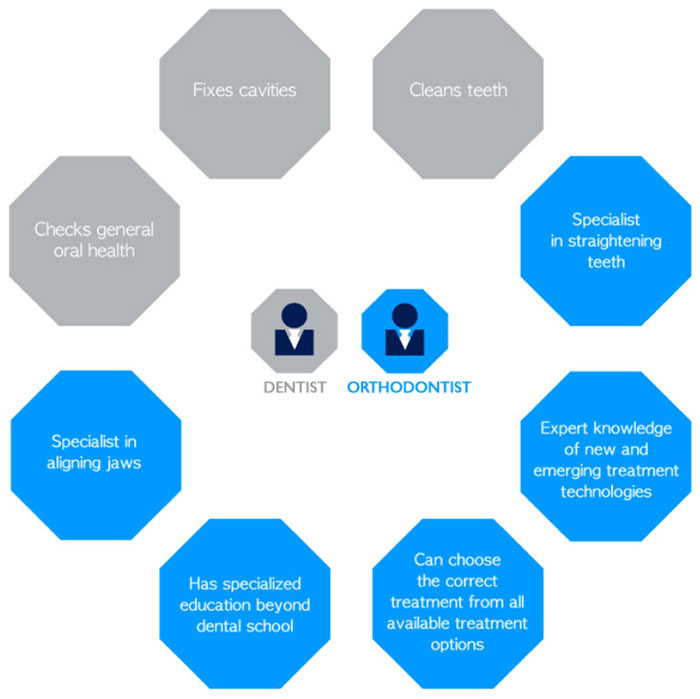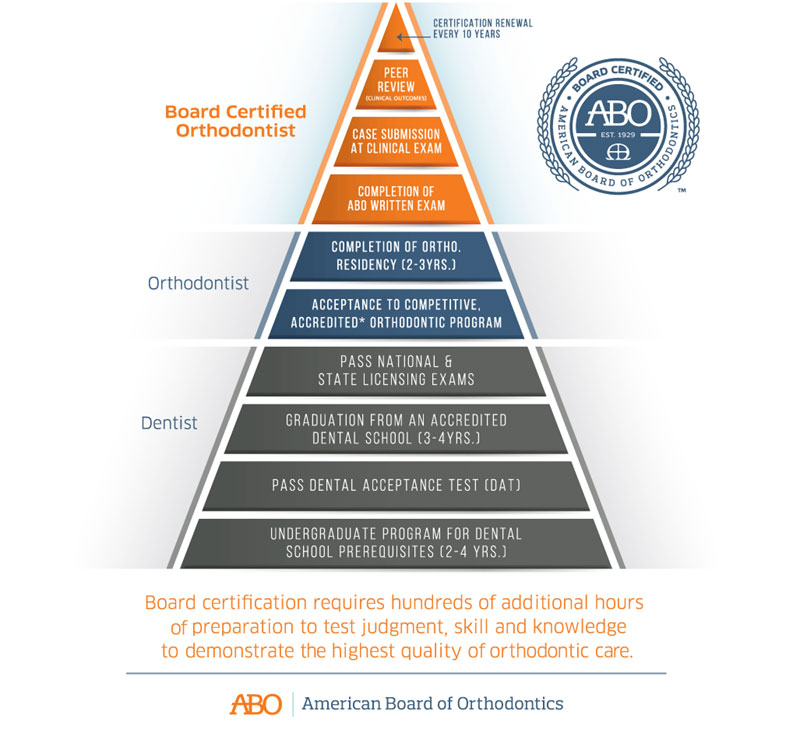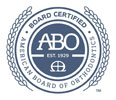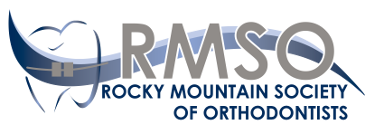What is an Orthodontist?
An orthodontist is a dental specialist who has been trained in an accredited specialty school for two to three years and has limited his or her practice to the field of orthodontics and dentofacial orthopedics (pediatric growth and development). All orthodontists have completed a college degree program followed by four years of accredited dental school training and at least two to three years of specialty training for orthodontics. There are many different dental specialists for different fields, but only orthodontists are specifically trained to treat patients with braces and growth enhancing appliances. The American Dental Association recognizes only two professional groups as specialty associations for certified orthodontists: The American Association of Orthodontists and the American Board of Orthodontists. Anyone not a member of one of these groups is not qualified as an orthodontic specialist and is not formally trained to provide any form of orthodontics (braces or aligners) for comprehensive (full-mouth) cases. Advertising "orthodontics" alone does not insure that an individual is an orthodontist.
Specialty training consists of an intense review of the history of current and previous treatment modalities, an exhaustive study of childhood growth and facial development, and a supervised practice of orthodontics under the immediate tutoring of experienced, board-certified orthodontists. Only after mastering the knowledge gained by generations of previous specialists and by completing multiple years of supervised orthodontic treatment, usually involving the correction of 100+ patients, and after demonstrating one has an unparalleled understanding of facial growth and development as it relates to the dental arches and jaw bones, can a dentist graduate and be called an orthodontist.
My dentist says he can place braces. Is he accredited and qualified?
Dentist vs Orthodontist

ABO Pyramid

General dentists are trained very well in many aspects of dentistry but they are not trained to treat comprehensive orthodontic cases straight out of dental school (hence we have a three-year specialty program after dental school for those that want to take that leap). Unfortunately, some dentists may take weekend courses over several months at un-accredited "educational institutions" and hint at specialty training or even openly claim they are just as well trained. They may even take different courses over years; all being a series of hourly meetings. But when you compare these weekend get-aways in places like Las Vegas to the rigid ADA accredited 24 to 36 months full-time (50+hours/week) specialty programs, you can come to appreciate the amount of knowledge and expertise that is necessary for complete and accurate diagnosis, treatment, and retention of comprehensive orthodontic cases. Mis-diagnosis and a lack of knowledge can lead to severe damage to the developing dentitions and a significant difference in facial support and profile. Adults with malocclusions are usually more difficult to treat, Mis-diagnosis and ignorance in treatment with these patients can lead to loss of supporting tissues (gum recession and bone loss, loss of teeth, and or loss of function with chronic tooth wear or TMD/jaw pain).
Years of experience don't mean much if the same mistakes are repeated. Unlike buying the same refrigerator from a cheaper store, when it comes to comprehensive braces there is a difference in specialty care and general dental care and it can affect the rest of your life.
Please refer to the following links for the only two professional organizations that represent true Orthodontists:
Visit the American Association of Orthodontists at www.braces.org
Visit the American Board of Orthodontics at www.americanboardortho.com




